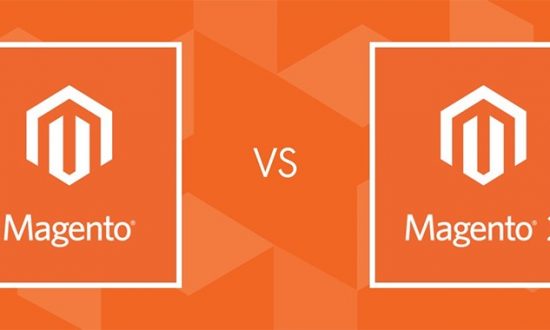The arrival of Magento 2 has left many storekeepers and developers pondering about the effect…
Are you considering to launch a new online store or switching the existing one to a new platform like Magento? Are you confused between Magento Open Source and Magento Commerce? If the answer is yes, then it’s incredibly essential to comprehend and estimate the total cost of ownership (TCO).
Some of you might be wondering what exactly does TCO mean. Then why not begin with a brief introduction about TCO.
The total cost of ownership is the financial estimate meant to assist buyers and purchasers to decide the direct cost and indirect cost of a system or product. TCO typically entails expenses like Hosting, Platform cost, 3rd party services, Apps or extensions, Support & maintenance, Future feature development, and Future platform upgrades.
With this blog, we aim to introduce you to the essentiality of TCO. Let’s compare the TCO of Magento Commerce and Magento Open Source and stroll you through some of the points to consider while choosing the right tool for your e-commerce business.
First is the cost, which is important for all businesses.
Cost is the immediate thing that sprouts in our mind while starting or purchasing anything. It is even more significant at the beginning of any business. According to the belief of many small-scale companies, open source solutions always offer the least TCO. And it’s accurate also, to a great extent. Opting for open source code is an excellent way to drop software and subscription charges. But TCO is much more than merely the price of your software like support, development, maintenance, merchant control, and a lot more. In various cases, the open source is actually costlier than a packaged solution with built-in flexibility. Especially in the case when comparing Magento Open Source with Magento Commerce.
Second, you need to know how much do you require to develop?
Developer-friendly Magento Open Source and Magento Commerce offer you versatility and access to code regardless of whichever version you’re using. However, Magento Open Source doesn’t give you out of the box solutions like Magento Commerce. For instance, it doesn’t have features like Business Intelligence, Page Builder, content staging, shipping, or B2B, implying that you will have to spend extra with Magento Open Source.
Third, are you considering shifting to the cloud?
The in house servers and networks that you manage are on-premises infrastructure. Most of the new and small businesses cannot bear to have on-premises infrastructure because it is quite expensive to mount and maintain. So, they are opting to use the Cloud to run their e-com platforms because-
- It has minimal upfront costs.
- It allows you to scale up and down your services.
- Big cloud service providers profit from savings of scale and transfer those economies toward you.
- Your cloud service provider usually takes care of most of the upkeeps.
In fact, many large companies are opting to function in the cloud for these specific reasons only. Although both Magento Open Source and Magento Commerce can operate in the cloud, only Magento Commerce Cloud offers built-in multiple cloud services like Fastly, Amazon, etc. i.e., there’s no need to research or manage service providers manually.
Fourth, do you own an IT team? Are they already overwhelmed?
Many flourishing industries have nominal IT departments where the owner often serve as de facto CIO. Beginning with Magento Open Source can be a huge role for such IT folks, requiring both development and IT competence. Keeping codes up to date and performing regular support jobs also requires development and IT expertise. In some cases, using Magento Open Source, you might have to appoint a contractor or expand your IT team. Whereas Magento Commerce offers rich and innovative functionality, making it easier, to begin with, the least resources. Also, you have to pay less on maintenance and upgrades over time if you use Magento Commerce.
Last, would you need any support?
You need support when you face any unexpected problem or are perplexed with questions. Although Magento Open Source provides you access to a community of developers, eventually you are liable for your own support working with an IT team or person. At times dealing with issues can be very time-consuming if your IT contact is occupied with other priorities. In that case, you could employ a team member or contractor who will be solely responsible for eCommerce support. Magento Commerce grants responsive support to quickly solve issues. By spending extra for the support, you will be able to resolve your issues even before they affect your business.
While taking a new present-day approach to eCommerce and thinking about replatforming, be sure to know the total cost of ownership in detail. And then, choose wisely according to your need.












Thanks for sharing this with us………Very nice and informative post…..!!!!!!!!